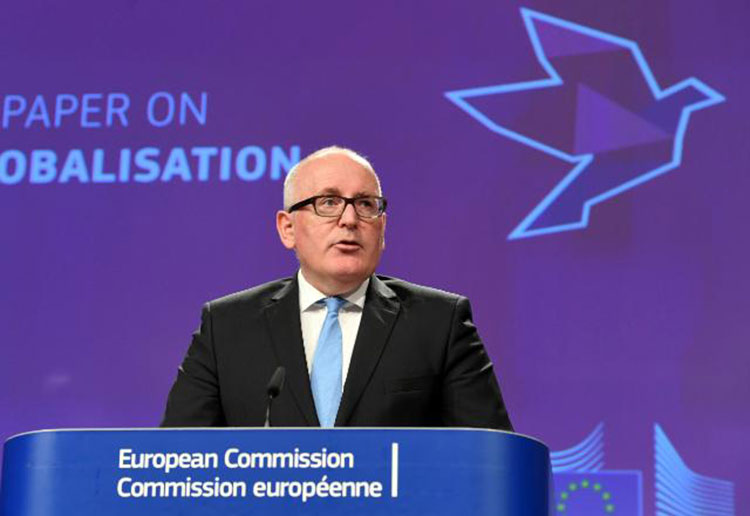Following the Commission’s White Paper on the Future of Europe presented on 1 March, the Commission is publishing its Reflection Paper on Harnessing Globalisation.
Based on a fair assessment of the benefits and downsides of globalisation, today’s Paper aims to launch a debate on how the EU and its Member States can shape globalisation in a way that anticipates the future and improves the lives of Europeans.
Frans Timmermans, First Vice-President of the Commission, said: “Globalisation is good for the European economy overall, but this means little to our citizens if the benefits are not shared fairly and more evenly. Europe must help rewrite the global rulebook so that free trade becomes fair trade. So that globalisation becomes sustainable and works for all Europeans. At the same time, we must focus our policies on getting people the education and skills they need to keep up with the evolution of our economies. Better redistribution will help guarantee the social cohesion and solidarity this Union is based on.”
Jyrki Katainen, Vice-President for Jobs, Growth, Investment and Competitiveness, said: “Globalisation is a formidable force bringing benefits to Europe and the rest of the world but also many challenges. To preserve the benefits of openness but also address its drawbacks, Europe must promote a stronger rules-based global order, act resolutely against unfair practices, make our societies more resilient and our economies more competitive in the face of a fast changing environment.”
The reflection paper takes an honest look at what globalisation has brought to the EU. The fact is that, even if the EU has greatly benefitted from globalisation, it has also brought many challenges. Around the world, globalisation has helped lift hundreds of millions of people out of poverty and enabled poorer countries to catch up. For the EU, global trade has boosted EU economic growth, with every €1 billion of additional exports supporting 14,000 jobs. Cheaper imports also benefit poorer households in particular. But these benefits are not automatic nor are they evenly distributed among our citizens. Europe is also impacted by the fact that other countries do not all share the same standards in areas such as employment, environmental or safety standards, meaning that European companies are less able to compete on price alone with their foreign counterparts; this can lead to factory closures, job losses or downward pressure on workers’ pay and conditions.
However, the solution lies neither in protectionism nor in laissez-faire politics. The evidence presented in the Reflection Paper shows clearly that globalisation can be beneficial where it is properly harnessed.



